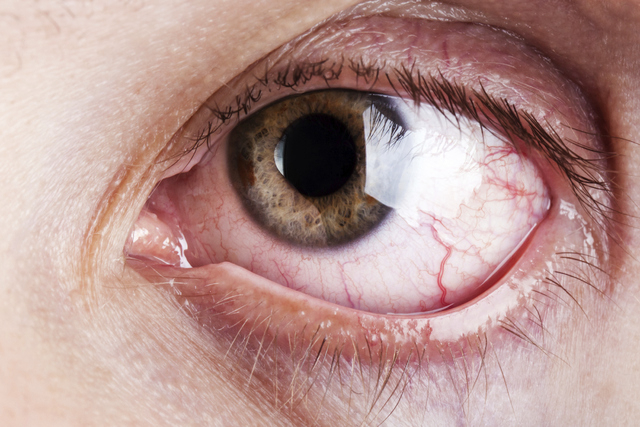Eyes itch from allergies? Relief may be as close as drugstore
As if the sneezing, congestion and runny nose weren’t enough, seasonal allergies often can bring with them red, itchy, watering eyes, too.
What can you do about it? More than you might realize.
Dr. Brian Alder, an ophthalmologist with Shepherd Eye Center, said the same stuff — “different botanical pollens and stuff flying around in the air” — that causes other allergy symptoms also can irritate the conjunctiva, the external surface of the eye.
The result: Itching, burning, redness and watering. And while seasonal allergic conjunctivitis is an annoyance for many, others can find it “really debilitating,” Alder said.
Most allergy sufferers begin by seeking out over-the-counter eye medications, and some, Alder said, can be “pretty effective.”
Over-the-counter lubricants, for example, can wash away whatever allergens sit on the conjunctiva’s surface and make people feel comfortable, he said, and are safe and effective.
But, if not, there are some specific over-the-counter medications that can help reduce the itching, Alder said, including the antihistamine ketotifen, taken in the form of eye drops.
If that still doesn’t work, “you need, certainly, to see an eye doctor to get a preparation that’s a little more potent,” Alder said, such as the prescription antihistamine Pataday.
Most of the medications used for seasonal allergic conjunctivitis are very safe medications, Alder added, and don’t cause many issues.
“A more potent medication like a steroid medication does have some side-effects if used chronically,” Alder said, and those patients “need to be monitored more closely. But people getting those usually are followed by an eye doctor regularly.”
Fortunately, a seasonal eye allergy usually “doesn’t turn into anything very serious,” Alder said. However, perennial or year-round eye allergies can cause problems if the eyes are “constantly and continually exposed to different allergens and are always inflamed.”
“It can create scar tissue and a lot of other things,” Alder said. “But it’s usually not because of seasonal allergies gone haywire.”
See your eye doctor if over-the-counter measures aren’t helping. Seasonal allergic conjunctivitis is “an under-reported issue, because in a lot of cases, people don’t really pursue it,” Alder said. “At that point it’s a reasonable thing to see an ophthalmologist and have a check of your eyes to see what’s going on. There are a lot of things that can cause redness, irritation and itchy eyes, so we want to make sure there’s nothing else going on.”
And, always, Alder stressed, see your eye doctor if you feel pain, have blurred vision or experience reddening or discharge from the eyes.

















